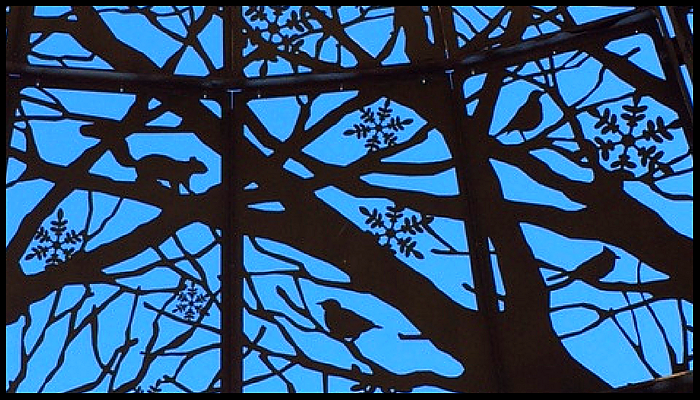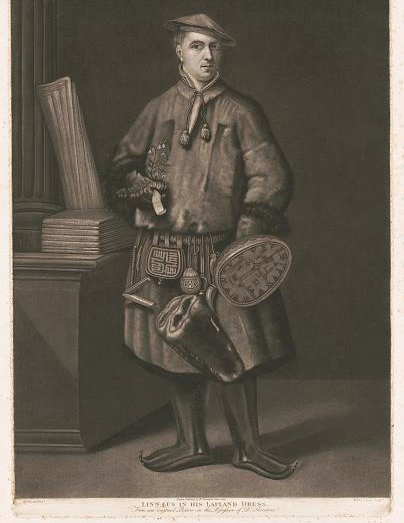
With trick-or-treaters still categorizing Halloween candy, it is a good time to introduce students to Carl Linnaeus. He liked putting things into categories too – especially plants and animals. In the wonderful children’s book, The Right Word: Roget and his Thesaurus, Jen Bryant describes Carl Linnaeus as a man who “put the names of animals and plants in categories, and that made nature much easier to study.” His classification system has seven levels, and each animal on the planet can be classified within his system.

Linnaeus in his Lapland dress, Library of Congress Image
The University of Michigan’s online Animal Diversity Web (animaldiversity.org) provides a wealth of information about animal classification, natural history, distribution and conservation. Prepared by
professional biologists, the Animal Diversity Web includes thousands of species accounts. Students can put in names of animals, learn their classifications and find the genus and species
names of their favorite animals (southern right whale dolphin = Lissodelphis peronii).
Students can then use genus/species names to make a “What Am I?” game. Generate a list of animals for students to classify. In small groups, have
students research the animals' habitat, food, appearance etc. and their classifications. Students will use their research to devise clues for the “What Am I?” game. For example, I am
a marine mammal. I am a carnivore that eats krill. My tongue can weigh as much as an elephant. My scientific name is Balaenoptera musculus. What am I? (Blue
Whale)
Did you like this article? Share it.

